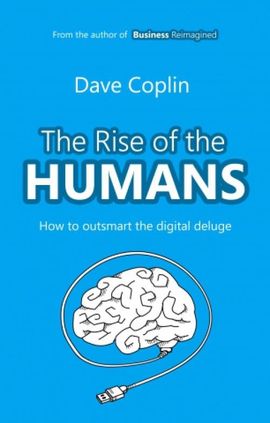
Synopsis
The rapid growth of our digital world has brought huge advantages – access to information anywhere, at any time, and the ability to communicate with colleagues, family and friends around the globe in real-time.
But in other ways, the same technology has also disconnected us. Computers risk becoming less of a productivity tool and more like information firehoses, drowning us in a deluge of data that can keep us from doing meaningful, real work. The devices in our hands connect us like never before, but they vie for our attention to the point where they are beginning to disconnect us from the real world.
In this book, Dave Coplin, Chief Envisioning Officer at Microsoft UK, argues that right now it feels like the machines are taking over but if we stop thinking about the digital deluge as a problem and instead see it as an incredible opportunity we will be able to redress the balance. Technology offers our society so much but it is up to us, the humans, to rise to that potential.
Details
Reviews
Thought-provoking book. This slim volume does some envisioning, giving you a more cheerful view of how to cope with the world of work and the flood of information than the usual headlines. It's also a good high-level survey of the research and writing on these areas, and it's written in a friendly and accessible style that doesn't assume you use any particular brand of technology, studded with personal anecdotes and discursions into what serendipity really means (it's more Sherlock Holmes that winning the lottery).Mary Branscombe, ZDNet
Coplin's 130-odd pages will leave you fantastically well read.Simon Rockman, The Register
Dave Coplin outlines how we can turn the threat of the "digital deluge" into a key organisational asset, creating a new generation of responsive organisations that are ready for the 21st century business world.Adam Pisoni, Cofounder and CTO at Yammer / CVP, Yammer Engineering, Microsoft
I recommend that you switch off all electronic devices, devour this in one sitting, then lean back and ponder deeply.Dr Nerina Ramlakhan, author of Tired But Wired

